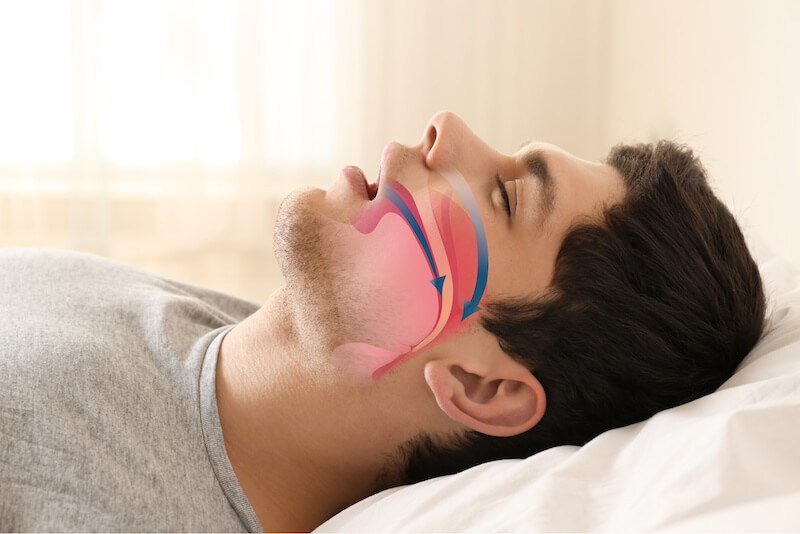
Breath in, breath out. We do it all the time, but it is rare that we take time to consider all that goes into this essential life-sustaining function. For instance, were you aware that you can breathe incorrectly? Regular mouth-breathing exposes you to short and long-term oral health problems. Dr. Silvina Chua of Silver Smile Dental hopes the following information helps you or anyone you know to understand the dangers of mouth-breathing.
Short-term Mouth-Breathing Effects
While breathing through your mouth during a temporary sickness or after vigorous exercise is safe, doing so as a substitute for nasal breathing leads to problems. Some of the short-term issues are:
- Impaired sleep. While it may seem as though you can get more air through your mouth, this breathing method reduces oxygen absorption your lungs(1). The result is lack of deep, restful sleep typically accompanied with irritability.
- Dry mouth. Breathing through your nose is introduced air to the mucus lining within your nostrils. This mucus plays three roles, two of which are warming and moisturizing the air (2) before it absorbed by your lungs.
- Bad breath. A symptom of dry mouth is bad breath. As the mouth dries out, your saliva glands try to compensate but are rapidly overwhelmed by the continual influx of dry air. Saliva helps to wash down food particles, stave off bacterial growth which in turn reduces unpleasant odors.
Long-term Mouth-Breathing Effects
When mouth-breathing becomes a regular habit, significant changes will occur in your mouth. Here are some of the most common changes:
- Unbalanced facial muscles. As mouth-breathing continues, your facial muscles will begin to alter to adjust to the habit. It is not uncommon for the natural position of your jaw, lips, palate, teeth, and tongue to gradually change. Hence, the next bullet point.
- Longer orthodontic treatment. Treating changes in the position of teeth (caused by mouth-breathing) will require a form of orthodontic treatment (3). Because mouth-breathing works against orthodontic treatment, it is more likely that the procedure will take longer than standard projections.
Dr. Chua believes in presenting every patient with verifiable information from reputable sources. If you have questions or concerns about mouth-breathing and its effects on your oral health, we recommend scheduling a consultation with her online or by calling us at (909) 393-1600.
(1) Mahinge, P. (2018, January 14). How to Stop Mouth Breathing and Start Sleeping With Your Mouth Closed. https://snorezing.com/mouth-breather-cant-breathe-through-nose/
(2) American Academy of Otolaryngology–Head and Neck Surgery. (2018, January 03). Your Nose, the Guardian of Your Lungs. http://www.entnet.org/content/your-nose-guardian-your-lungs
(3) Limme, M. (n.d.). [Orthodontic consequences of mouth-breathing]. https://www.ncbi.nlm.nih.gov/pubmed/1815296
